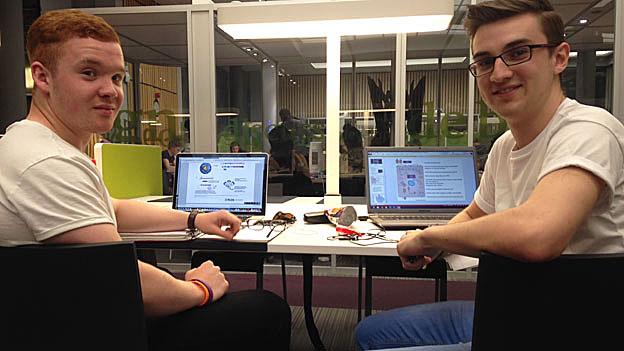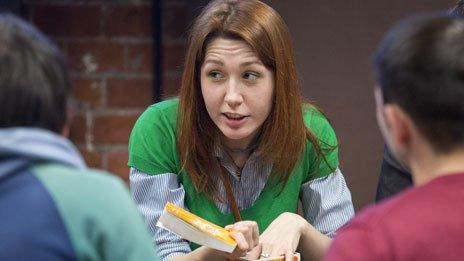Students more likely to own flat-screen TVs than bikes
- Published

Tablet computers have become much more popular among students
Students are more likely to own their own flat-screen television than a bicycle, an annual survey suggests.
The student lifestyle tracker report, commissioned by the National Union of Students Services and Endsleigh insurance, is based on responses from more than 2,000 students across the UK.
It indicates digital technology has a pivotal place in how students study and socialise.
Laptops and smartphones are owned by an overwhelming majority of students.
The average student's possessions are worth £4,500, according to the study, with £3,000 of this in electronic gadgets.
There are some with much more expensive possessions, the study suggests. Almost a quarter of those surveyed have their own car - only slightly behind levels of bike ownership, which stands at 29%.
This year's survey also suggests a rapid take-up of flat-screen televisions, now owned by 37% of students.
Laptop life
Digital devices are a central part of campus life - with a laptop identified by most of the students as their "most prized possession".
More than 90% of the students own a laptop and smartphone - and a rapidly increasing number also have a tablet computer, such as an iPad. There are now 40% who own a tablet computer - almost double last year and four times the year before.
Although students might now take a smartphone for granted, three years ago they were still relatively uncommon, with only a third of students surveyed in 2011 owning a smartphone.
As the smartphone has risen, other gadgets have fallen. Music players, such as mp3 players and iPods, have tumbled in popularity. Digital cameras are less widely owned than three years ago.
There has been a slight increase in students owning e-readers, but they still remain in the minority, according to the survey. Fewer than one in five of the students own an e-reader - about the same proportion who still have desktop computers.
Students are big consumers of social media - with high levels of usage of Facebook and Twitter - and almost every student reported using apps.
Social media websites are the most popular apps - and a majority of the students say they regularly use apps for watching videos, maps, shopping, sharing photographs and catch-up television.
More than a third of students use online apps for news.
"We've seen over the last few years that students are becoming more reliant upon portable gadgets such as tablets and smartphones," said Endsleigh's student manager, Sara Newell.
- Published21 May 2014

- Published9 April 2014
